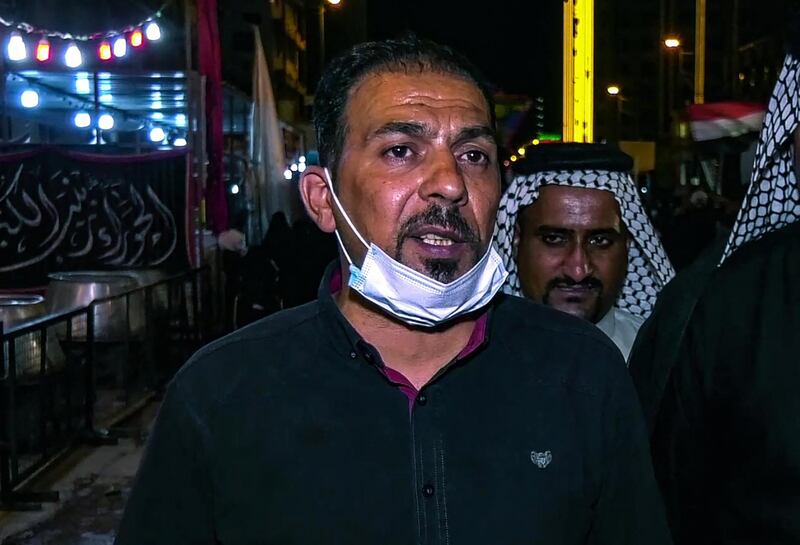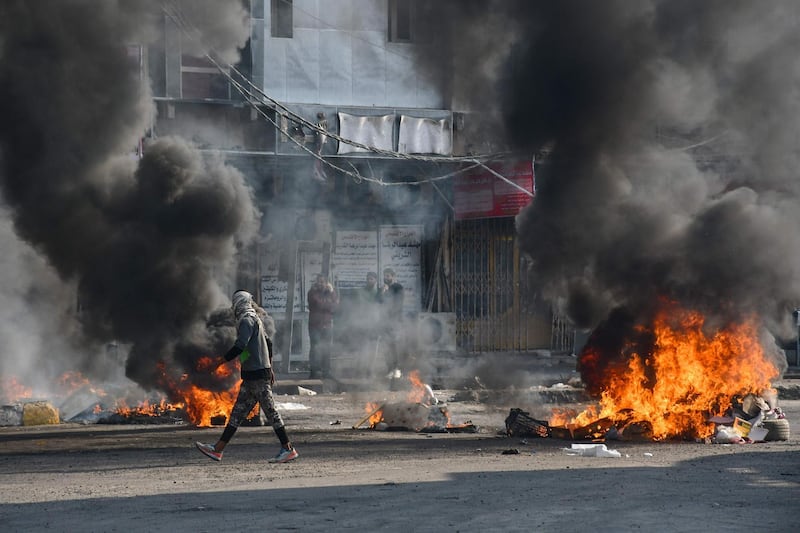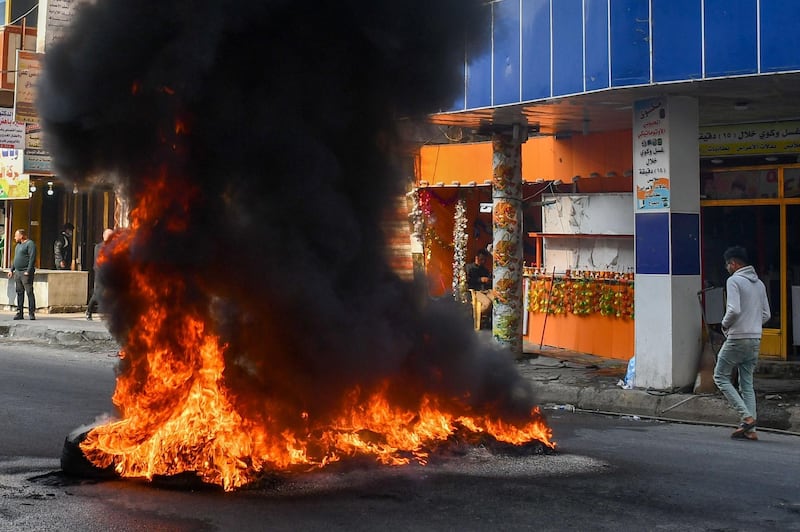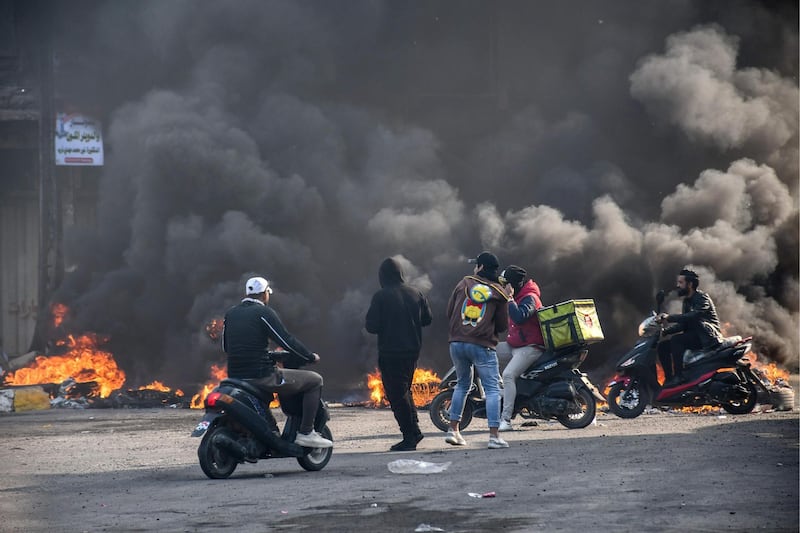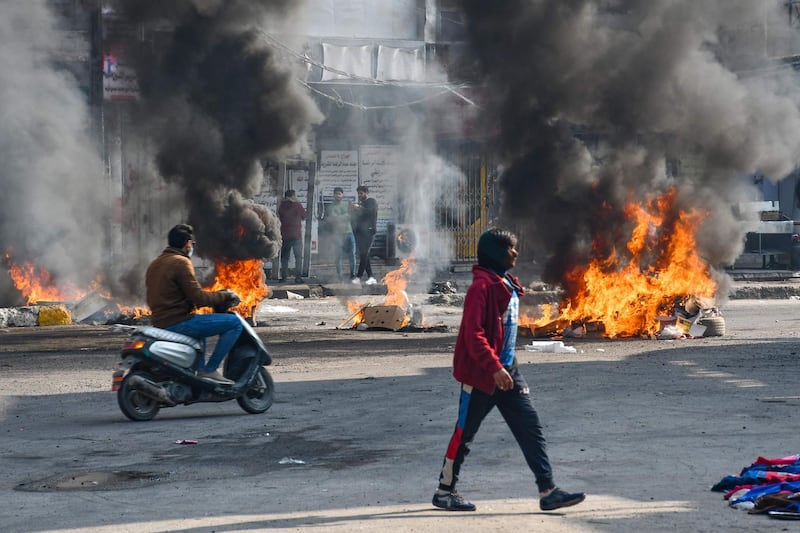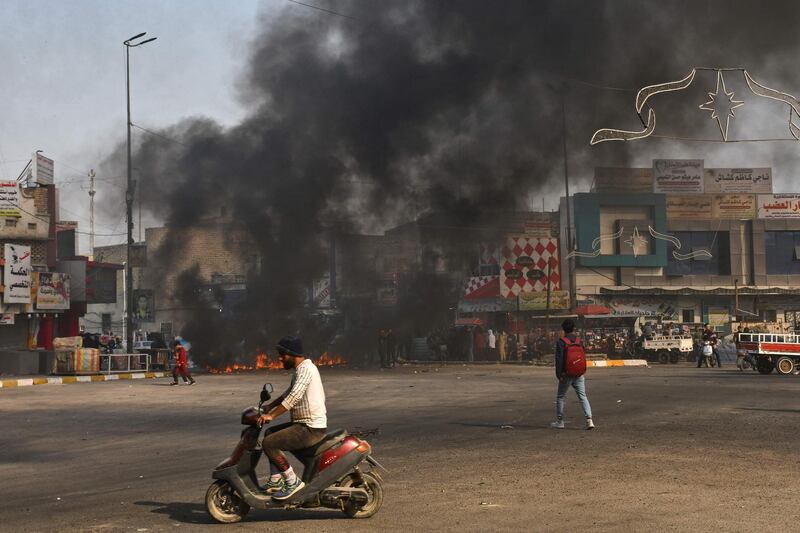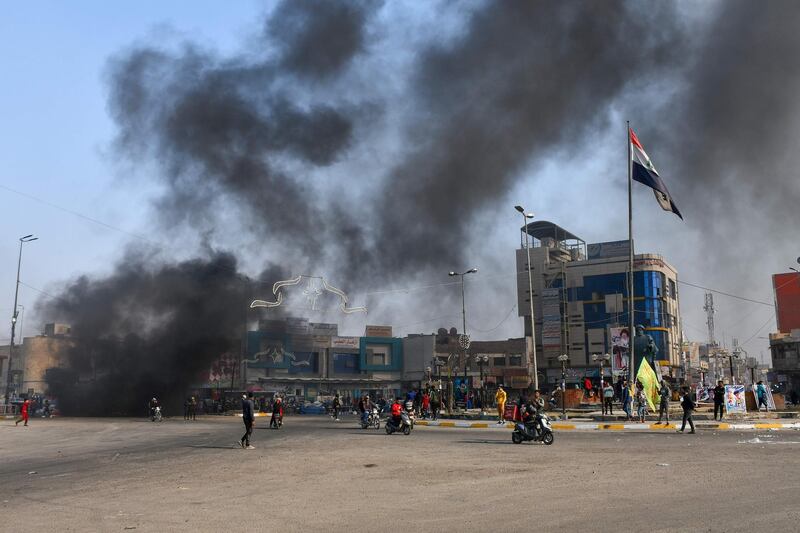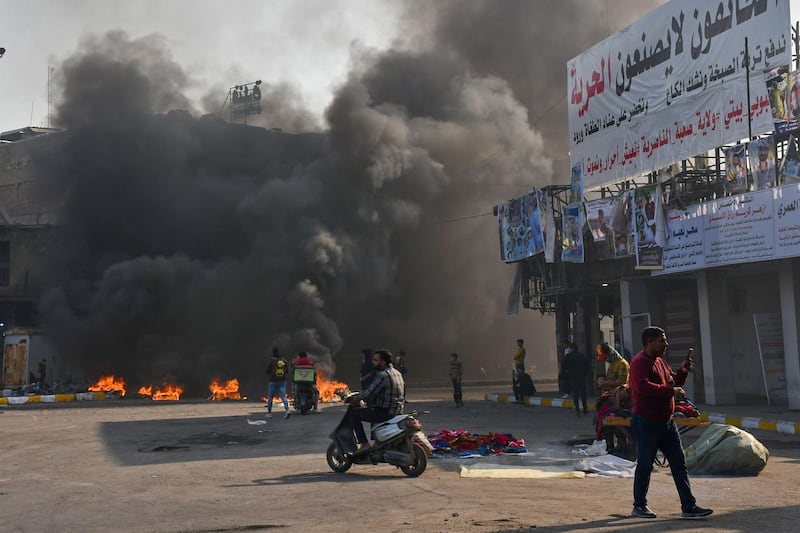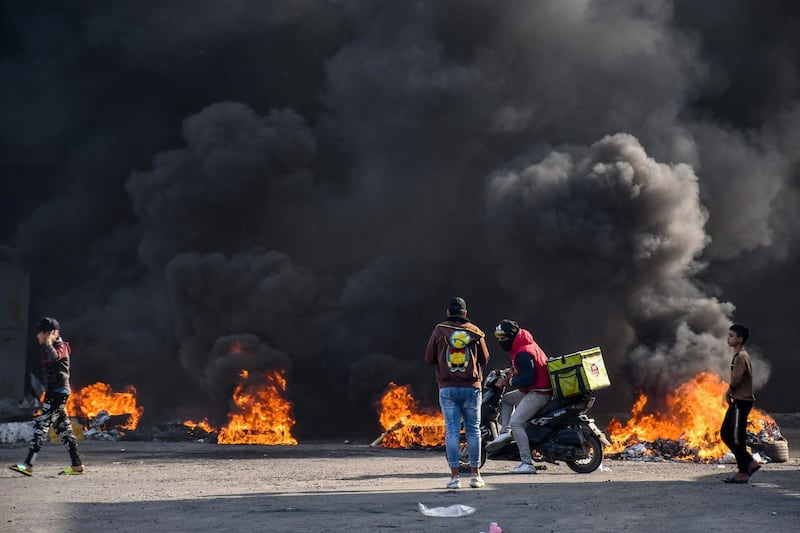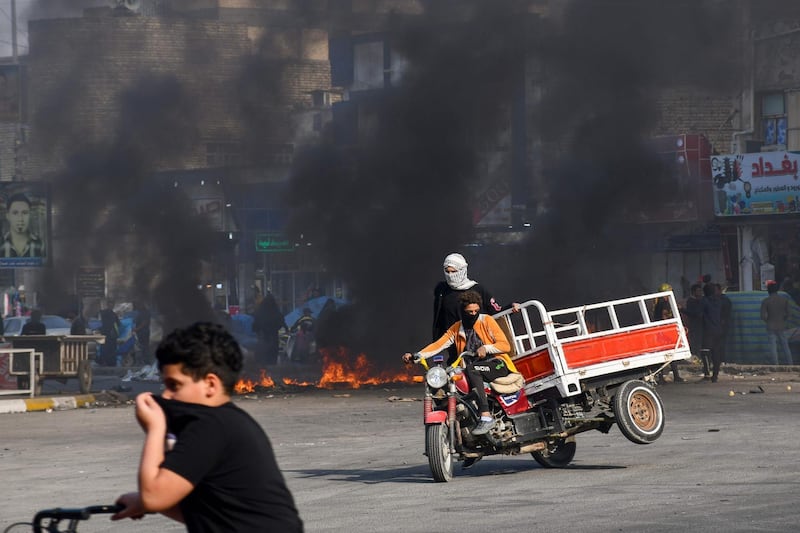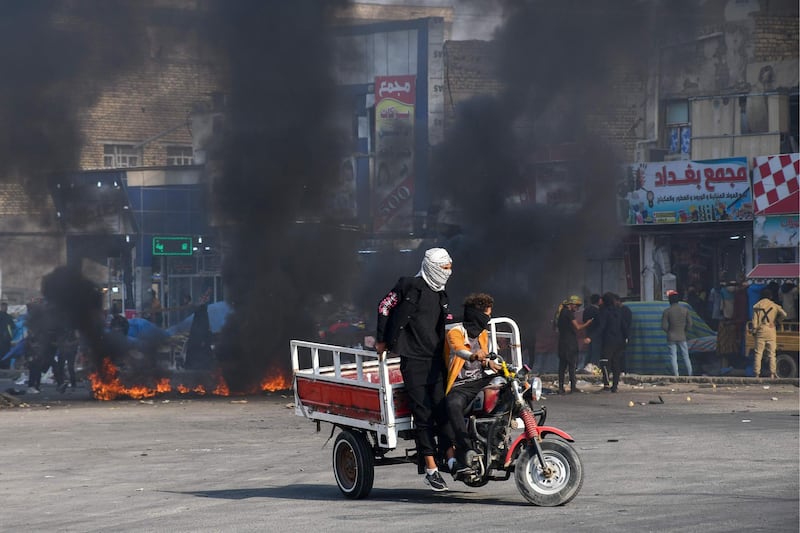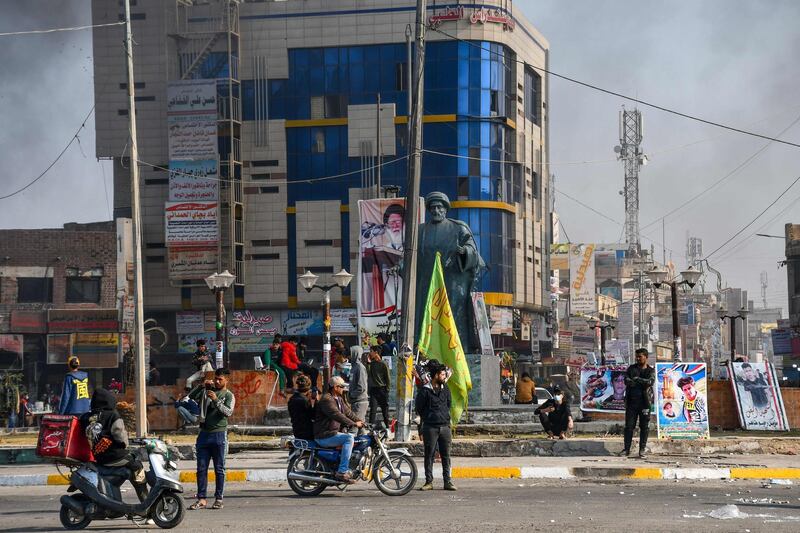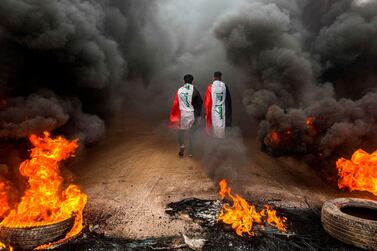Iraqi activist Ihab Al Wazni on Sunday became the latest victim in a wave of targeted killings in the country, despite repeated calls for the government to bring perpetrators to justice.
Dozens of activists, journalists and members of civil society groups have been assassinated, kidnapped and threatened since the start of widespread protests nearly two years ago.
The protest movement, which grew rapidly in October 2019, has called for more employment opportunities, better public services and an end to corruption.
Al Wazni, known as the "Hero of Karbala", was killed by gunmen near his home in the southern holy city, in the early hours of Sunday.
His death has sparked outrage at the lack of action taken by authorities to protect civilians and provide them with basic public services.
Other high-profile activists, researchers and reporters have been killed or targeted since late 2019.
The government has been under pressure to find and punish the killers of activists calling for reforms, with public concern mounting over the frequency of these attacks.
Who has been killed?
One of the most prominent political commentators to be murdered was Hisham Al Hashimi, who was shot outside his Baghdad home in July 2020. His death dealt a huge blow to the country’s academic and civil society institutions.
Born in Baghdad in 1973, Al Hashimi was a well-respected expert who wrote extensively about ISIS and Al Qaeda, authoring three books. He advised current and past governments on terrorism and extremist groups.
Al Hashimi was also a strong supporter of the protest movement.
Prominent journalist Ahmad Abdessamad, 37, and his cameraman Safaa Ghali, 26, who had been covering anti-government protests in their home city of Basra, in the south, were shot dead in January 2020.
They were assassinated in their car, while parked near a police station.
Abdessamad was a vocal supporter of the protest rallies.
Jinan Madzi, a paramedic who treated wounded protesters, was shot dead during demonstrations in Basra the same month.
Riham Yaqoob, a doctor and female activist who became the face of the protest movement in Basra, was killed last August.
A few weeks after her death, the killing of another activist, Tahseen Osama, pushed protesters to take to the streets to demand that authorities find those responsible.
Salah Al Iraqi, who was well-known for taking an active role in rallies, was shot dead in eastern Baghdad last December.
In his last post on Facebook, Al Iraqi wrote: "The innocent die while the cowards rule."
Amjad Aldhamat was killed after walking out of a police station last October in his home city of Amara in southern Iraq.
He and another activist had been had been attending a meeting with police to discuss a planned protes.
As Aldhamat walked out, gunmen approached in a car with tinted windows and no licence plates and shot him dead.
Ali Jasb, a young rights lawyer, was kidnapped in Amara in October 2019 and nothing has been heard from him or his captors.
Jasb Aboud, the father of Ali Jasb, publicly accused a powerful Iran-backed militia of kidnapping his son, and sought to take its leader to court.
He was shot dead by gunmen in early March in Amara.
What happened at rallies?
In October 2019, widespread rallies erupted across Baghdad and the south against a government seen as corrupt, inept and beholden to neighboring Iran.
Protest-related violence left at least 550 dead and thousands more injured, while hundreds were detained.
Some protesters were shot dead while walking home from demonstrations.
Others were kidnapped, assaulted and threatened.
Prime Minister Mustafa Al Kadhimi, who came to power in May after street pressure forced his predecessor, Adel Abdul Mahdi to resign, pledged to protect rallies and arrest those responsible for past violence.
